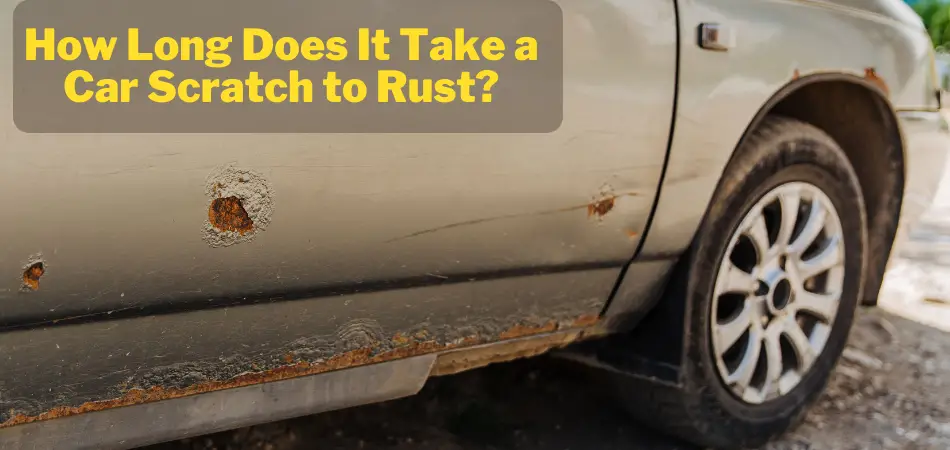A car scratch is never pleasant and will affect the look and value of your vehicle. But, how long does it take a car scratch to rust? Unfortunately, most car owners do not give attention to scratches until they become something terrible.
So, the length of time a car scratch takes to rust is dependent on the severity of the scratch, how quickly the scratch is fixed, and how quickly it can be exposed to the elements. Of course, a car scratch is superficial and can be fixed in many ways, but understanding what a rusting scratch could do to the rest of the car should help spur you to get it treated.
Depending on the extent of damage, where the scratches are located, and some other factors, rust can start to form as soon as 12 hours after your car is scratched. However, most of the time, it takes a few days or up to a week before you notice any rust formation.
Contents
What Are the Effects of Car Scratches?
Car scratches have two major impacts on your car. The first is the look it changes in your car. Depending on the size of the scratch on your car, car scratches can be as obvious as can spoil the look of your car and equally affect the integrity of the owner.
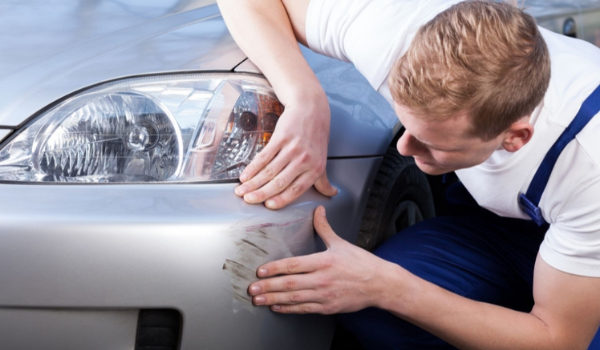
By making the scratched part different and odd, it calls public attention which suggests that the owner is perhaps not responsible or financially buoyant to take care of his or her car. Car scratches also impact the prize or resale value of the car. Imagine that your car sustains scratches and you fail to take care of it immediately and it happens that you have to sell your car out of emergency or use it for loans.
Of course the value will drop because the body is going to look so old and odd that it would be very difficult to convince the buyer that you hadn’t driven the car to death. The other more dangerous effect of car scratches is that it gradually leads to rust in the body of your car.
The even more annoying thing is that the scratch might appear quite insignificant initially, but soon spreads. The way car scratches spread is almost like kerosene , especially when it is deep.
However, not all car scratches spread as quickly. Some can take months and still remain the very size of the initial scratch. The reason for this is in the type of scratch sustained.
What Are the Types of Car Scratches?
Basically, there are three types of scratches that your car can sustain. The first is the paint scratch, the second is the middle coating scratch and the third is the deep scratch.
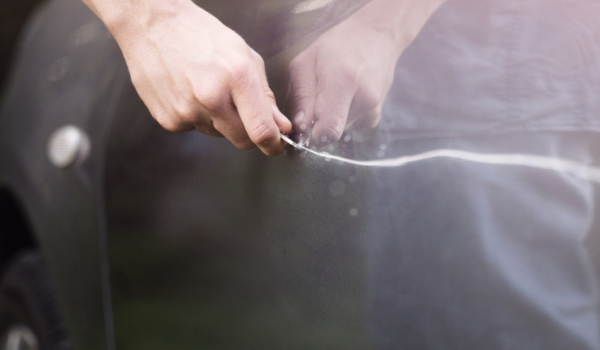
The surface of paint scratch only removes the paint, the outer paint of your car. The paint actually serves like an initial or surface coating and beauty. If only the paint is scratched, corrosion may not set in as quickly as within five to seven days.
There is also the middle or coating scratch. Cars steels and irons are first and foremost coated with a middle layer which separates it from the outermost paint first. If the scratch is deep, it would go beyond the paint to also scratch the middle coating in-between the iron and the paint.
This brings the corrosion or rust quicker than it would if it were just a paint scratch.
But there are scratches that both remove the paint and the middle coating and even scratches the steel iron of the car. This deep scratch leads to rust quicker than the other two.
What Determines How Fast Car Scratches Can Rust?
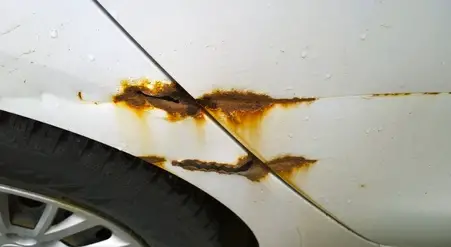
- Weather: The weather condition is one of the major determining factors of rust in car scratches. A cold weather will automatically mean that there will be more moisture in the air. The higher the moisture in the air, the more exposed the scratched body or steel of the car gets to the reactions of iron and oxygen which finally result in rust.
- Car Quality: The quality of the car also goes a long way to determining the car fares on rust when scratched. Most car owners complain that cars bought in recent times hardly withstand little scratches, unlike their counterparts bought in the 80’s and 90’s which are very well undercoated.
- The Road Quality: Some states are said to use some very bad chemicals in the making of their roads. These chemicals facilitate corrosion on car scratches when they are driven through such roads more frequently.
- The Mass and Thickness of the Affected Part: If the mass or thickness of the affected part is high, it will be difficult for the rust to eat deep into the scratched part. But if the scratched part is quite slim and weak, it would be much easier for the rust to eat deep and spread within days of the scratch. Your ability to locate and take proactive measures once you notice that your car has sustained scratch. A quickly treated car scratches will prevent the rust from spreading and affecting the other sides of your car.
How to Remove Car Scratches?
Removing rust from your car rust demands that one is thorough, quick and observant. It also depends on the type of rust sustained. For the shallow scratches of cars, repainting can just do the magic by simply covering the scratched part.
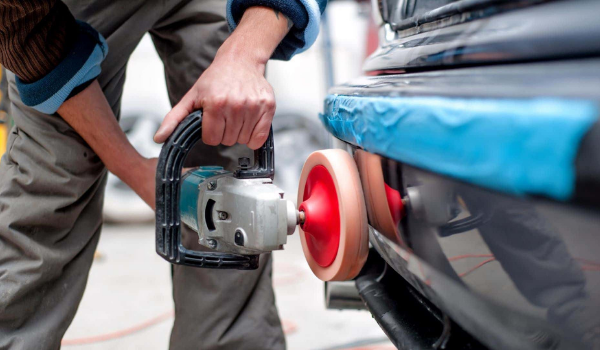
For the deep scratches which sometimes result in the pilling of some parts of the metal of steel, one needs to first refill the hole or holes created on the steel before proceeding to paint. For rusts that have eaten deep, a sandpaper or drill could be used to first remove the rust before refilling and repainting.
It is good to engage the services of a professional to take care of your car scratches and give it the professional touch that will make the scratched part no different from the other sides.
Conclusion
Car scratches can take up to one year to rust, it can take between four to six days to rust, and it can equally take months. The speed at which your car scratches become rusts depends on where you live, when the scratch is sustained and how deep the scratch is on the car.
Nonetheless, it is advisable not to allow your car scratches to last and take a longer time to fix so that it doesn’t turn into rust.

